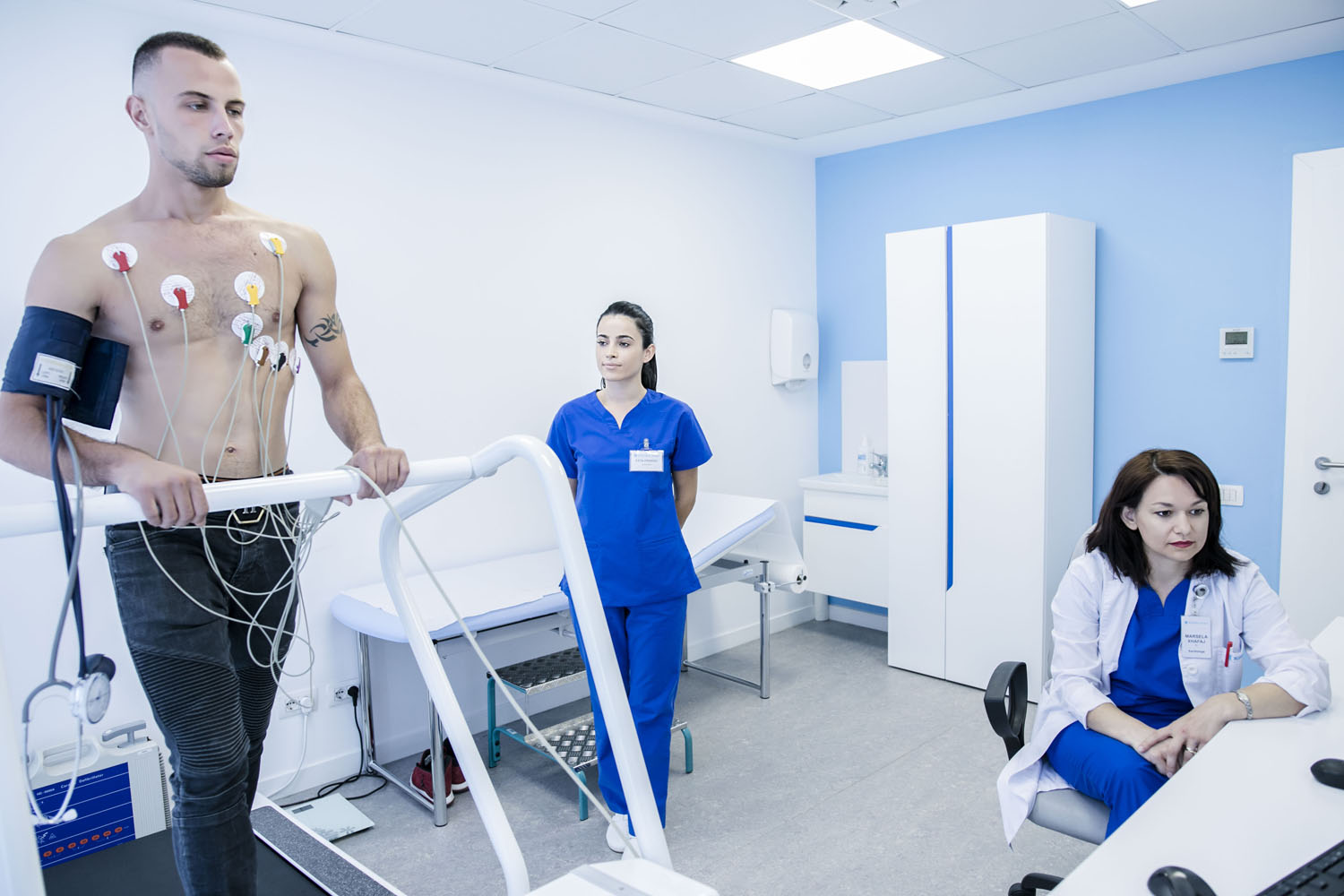
A Stress Test ECG is a diagnostic procedure used to evaluate how your heart responds to physical exertion. Conducted using a stationary bicycle or treadmill, the test involves gradually increasing physical effort following a specific medical protocol under the close supervision of a cardiologist and trained medical staff.
Patients are connected to the equipment through electrodes that continuously monitor the heart’s electrical activity. Before the exercise begins, the patient undergoes an initial ECG and blood pressure measurement. The test itself typically lasts 7–12 minutes, but including preparation, the entire process can take up to an hour.
What Does the Test Monitor? 🩺
During the test, medical staff observe:
This monitoring provides functional information about how well the coronary arteries supply blood to the heart muscle. Unlike echocardiographic tests, a Stress Test ECG focuses on the heart’s response to physical stress, offering unique insights into its performance during exertion.
Preparing for the Test 🛠️
To ensure accurate results, follow these guidelines:
Who Should Have a Stress Test ECG? 🩺💡
The test is recommended for individuals with:
It is also advised for at-risk demographics, such as:
Other candidates include:
A Stress Test ECG is a vital tool for diagnosing heart conditions and evaluating the heart’s ability to function under stress.
For additional information on potential risks or complications, consult the consent form provided by your healthcare provider. 🏃♀️❤️
Take control of your health—book your appointment for a Stress Test ECG today.
DISCLAIMER: The information presented on this page has been intentionally condensed and simplified to make it accessible and easier to understand for the general audience. Its purpose is solely to provide basic awareness and education on the topic discussed. It is important to note that this content is not exhaustive and does not replace or serve as a substitute for professional medical advice, diagnosis, or treatment. Readers are strongly advised to seek consultations with qualified healthcare professionals or specialists for accurate assessment, personalized guidance, and appropriate medical care. Relying solely on the information provided here, without professional oversight, may lead to misunderstandings or inadequate treatment.
Privacy policy
Copyright ©2025 Klinika Kajo. Designed By Vizional